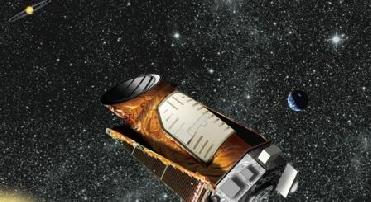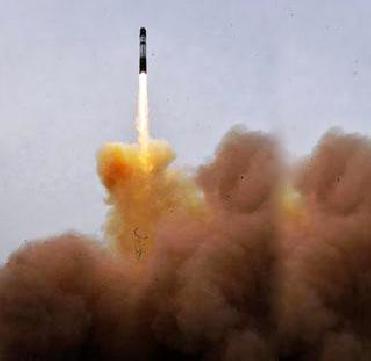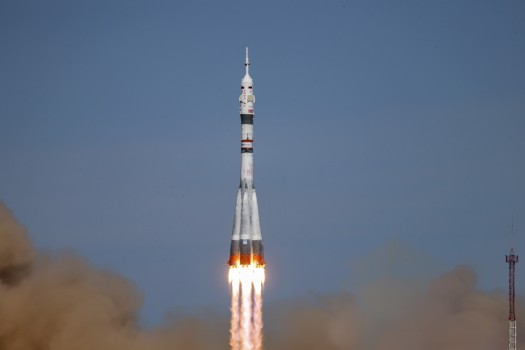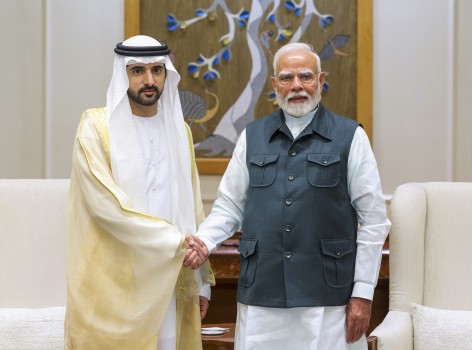
Artist's concept of Kepler in the distant solar system. NASA/JPL-Caltech photo
PASADENA, CALIF. (BNS): NASA's Kepler Mission has released science data on more than 156,000 stars. These stars are being monitored for subtle brightness changes as part of an ongoing search for Earth-like planets outside the solar system.
Astronomers will use the new data to determine if orbiting planets are responsible for brightness variations in several hundred stars.
Kepler, a space observatory, looks for the data signatures of planets by measuring tiny decreases in the brightness of stars when planets cross in front of, or transit, them. The size of the planet can be derived from the change in the star's brightness.
The 28-member Kepler science team also is using ground-based telescopes and NASA's Hubble Space Telescope and Spitzer Space Telescope to perform follow-up observations on a specific set of 400 objects of interest.
Without the additional information, candidates that are actual planets cannot be distinguished from false alarms, such as binary stars -- two stars that orbit each other, NASA's Jet Propulsion Laboratory statement said.
Kepler will continue conducting science operations until at least November 2012, searching for planets as small as Earth, including those that orbit stars in a warm, habitable zone where liquid water could exist on the surface of the planet.
Since transits of planets in the habitable zone of solar-like stars occur about once a year and require three transits for verification, it is expected to take at least three years to locate and verify an Earth-size planet.
"The Kepler observations will tell us whether there are many stars with planets that could harbor life, or whether we might be alone in our galaxy," said the mission's science principal investigator, William Borucki of Ames.
 Previous Article
Previous Article Next Article
Next Article












The Indian Air Force, in its flight trials evaluation report submitted before the Defence Ministry l..
view articleAn insight into the Medium Multi-Role Combat Aircraft competition...
view articleSky enthusiasts can now spot the International Space Station (ISS) commanded by Indian-American astr..
view article